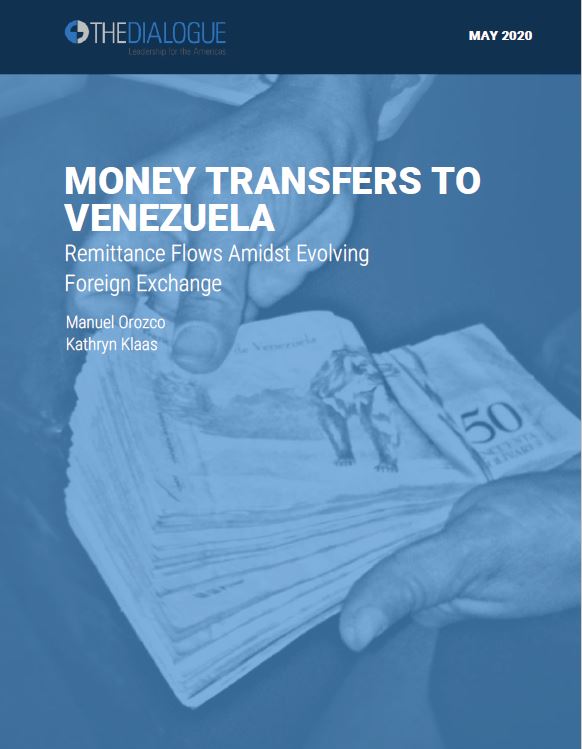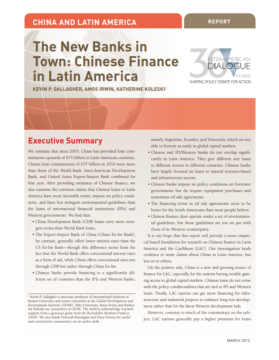The Earthquake’s Impact on Remittances
The earthquake in Haiti has exacerbated an existing distress during the international recession and increased uncertainty of what to do and how to help.
This report by the Inter-American Dialogue's Migration, Remittances and Development Program offers an overview of how foreign currency regulations affect money transfers to Venezuela in addition to describing and explaining Venezuelan migrant remitting behavior in six migrant host countries. It also provides an estimate of the aggregate volume of remittances sent to Venezuela.
The first section details how policies regulating local and international currencies have evolved under the Maduro administration, including those related to currency devaluation, the creation of parallel currency regimes, and the impact of the sovereign bolivar on money transfers.
The second section provides a comparative overview of remitting behavior, offering a profile of those who remit to Venezuela, how much they send, and many households receive remittances.
Finally, the last section estimates the volume of remittance flows to Venezuela based on remitting behavior and data on the propensity to remit. We find that these flows will grow considerably in the near future and will make an important contribution to the country’s households’ needs.
The earthquake in Haiti has exacerbated an existing distress during the international recession and increased uncertainty of what to do and how to help.
Hugo Chavez, the Venezuelan president, has clearly been enticed by the Libyan drama, where his longtime friend and ally, Muammar al-Qaddafi, is under siege from rebel forces.
Estimates of the volume, composition, and characteristics of Chinese lending to the region since 2005.

